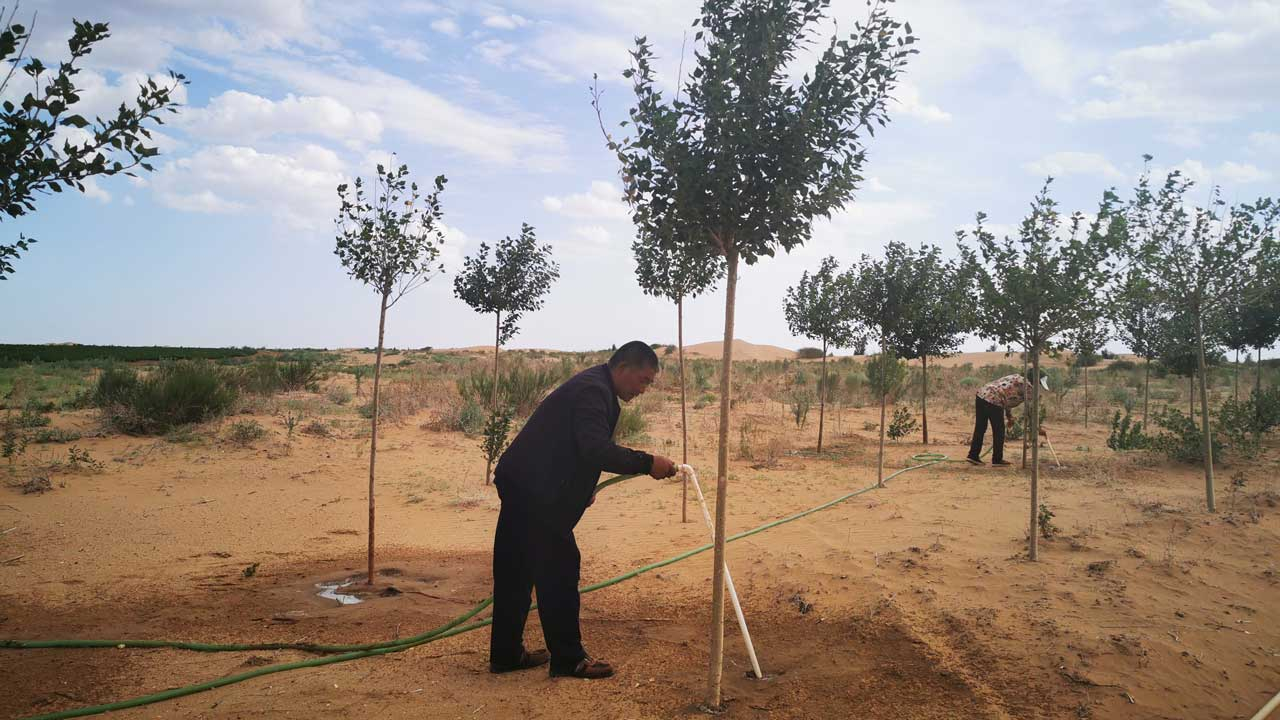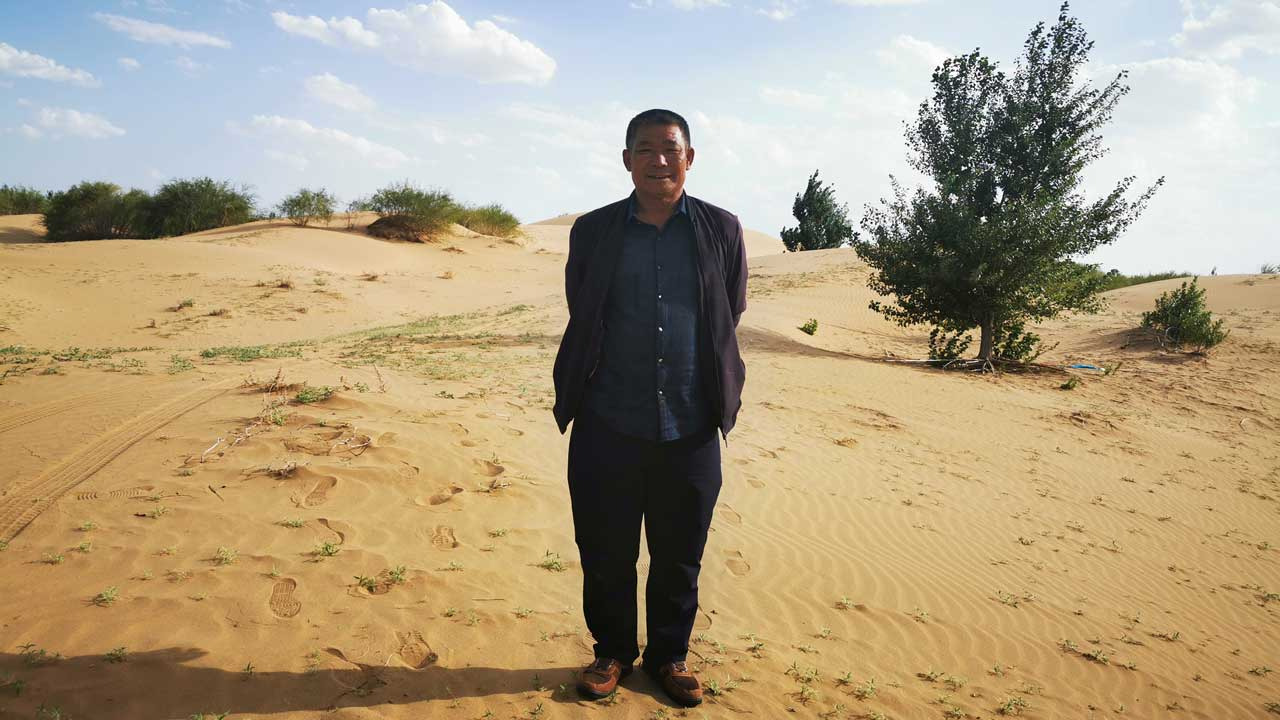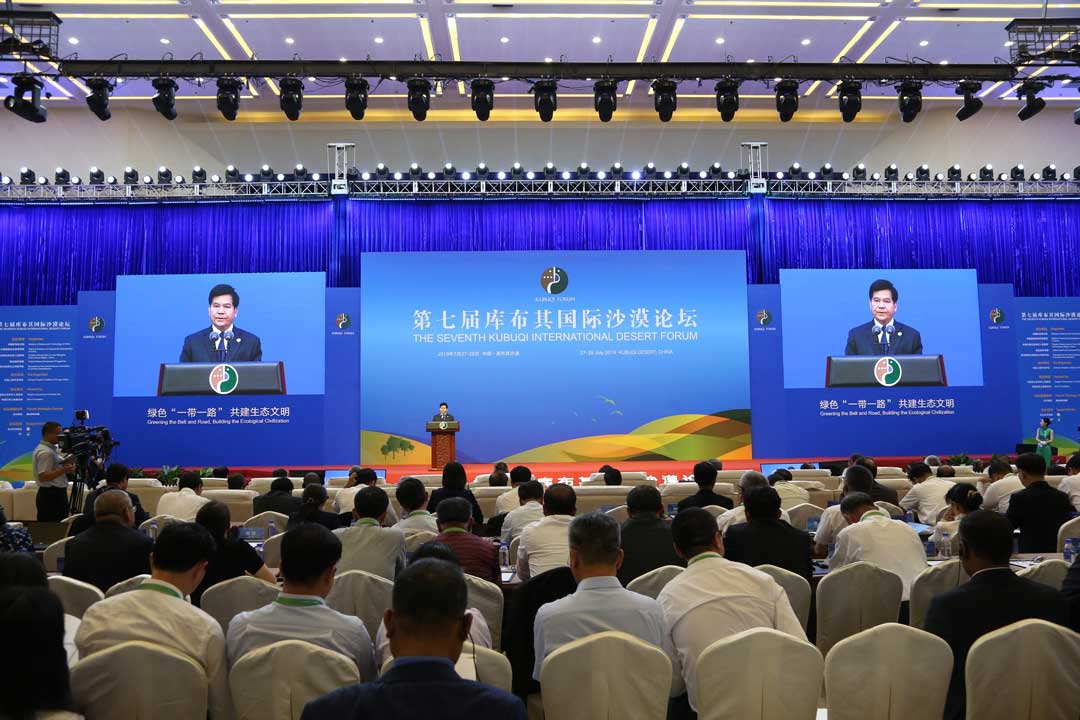

Fighting against desertification is a common goal shared globally. China's Kubuqi desert is offering its solution as the 7th Kubuqi International Desert Forum opened on July 27. Chinese President Xi Jinping and UN Secretary-General Antonio Guterres sent congratulatory letters to the biennial forum.
Kubuqi, China's 7th largest desert located in Inner Mongolia Autonomous Region, was once called "the sea of death."
But within 30 years, the authorities have reclaimed desert area of over 6,000 square kilometers and vegetation now takes up more than half of the vast desert. In the process, over 100,000 locals have been lifted out of poverty.
From a poor herdsman to a tree planting expert in the desert, Gao Maohu is one of the many beneficiaries of the desert's huge land restoration project. Now he's a leader in the project involving some 10,000 locals.

From a poor herdsman to a tree planting expert, Gao Maohu is one of the many beneficiaries of the huge land restoration project in Kubuqi desert, Inner Mongolia Autonomous Region, China. /CGTN Photo
As Gao recalls, this has involved decades of struggle and exploration. "I was among the first batch of herdsmen led by the government and the company Elion to plant trees on a large scale. But at first the survival rate of these plants was quite low. Gradually, we explored new technologies such as minimally invasive air-pressed planting, drone-based planting and biology-based soil improvement."
Combining desertification control with economic growth and integrating the efforts of the government, private companies and local residents – that's what the Kubuqi model is all about.
And now officials are seeking more green collaboration, especially among countries along the Belt and Road at the international desert forum.
"Through platforms like the Belt and Road desert control system, China will offer assistance to other developing nations without any additional political conditions, contributing more to global desertification prevention," said Chinese vice premier Sun Chunlan at the opening ceremony of the forum.

The opening ceremony for the seventh Kubuqi International Desert Forum on July 27, 2019, in Erdos, Inner Mongolia Autonomous Region, China. /CGTN Photo
So, what could other countries learn from Kubuqi? Desertification professionals shared their thoughts with CGTN.
"The idea of bringing the people from the grassroots to participate is very important, especially because I've seen people working in the solar power project get paid. And under the solar power, we see the possibility to grow crops," said Bala Gukut, deputy director at Federal Ministry of Environment in Nigeria.
"Your farmers here grow trees and under the trees, they grow vegetables. That's what we are teaching farmers in my country, making the best of productivity by land size. So, we need to find some kind of cooperation between my center and Chinese institutions," said Professor Hassan M. El Shaer of the Egyptian Center of Excellence for Saline Agriculture.
Gao Maohu says he has visited many deserts in China to share his experience. In the future, he's willing to go further, passing on Kubuqi's wisdom to the rest of the world.

Copyright © 2018 CGTN. Beijing ICP prepared NO.16065310-3
Copyright © 2018 CGTN. Beijing ICP prepared NO.16065310-3